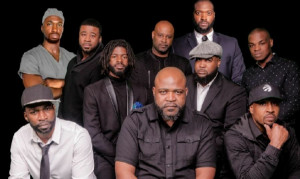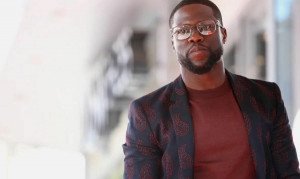You were an orphan at the age of four. Could you speak on that?
When I was turning four, both my parents were murdered in Montreal. I was raised without any parental figures. I had to move in with my aunt who lived in Ottawa, and we eventually moved to Scarborough.
What do you remember about that experience?
I remember going to the funeral and having no idea what was going on. I didn't understand the concept of somebody dying and not coming back. I remember seeing them in a casket and thinking that they were just asleep. I wondered why everybody was gathered around, dressed up, crying. I actually never understood or grasped the concept that they weren't coming back until we went to the cemetery. I saw them going into the earth and that was when it hit me.
How did all this affect you?
I have siblings too and I know that it affects each one of us differently. We all got to know our parents in a different way, so for some of us, the impact was more and for some of us it was less. For me, it affected me in a way that I didn't feel like a regular everyday kid. I would go to school and hear people say, 'my mom packed me this or my dad is going to pick me up.' For me, I don't ever remember being able to say mom or dad. Growing up I never really got to use those words, and for me, it kind of had an effect on me because as I grew up I started to look down on people who said, 'I hate my parents, I hate my mom or I hate my dad.' In my head, I was like, 'You don't even know how lucky you are to even have them. How can you hate somebody that you have in your life who's your parent?' I was always kind of angry at the fact that people could say those things, not knowing that I would give anything to be able to say the words mom and dad.
How did you deal with it?
When I was younger I had to go to therapy, post-traumatic stress therapy. It was for younger kids who experienced trauma. I had to go through that with my siblings. I remember going there and they told me (I was a little older by then) that the odds were stacked against me. It was the same thing when I went to school(s). They would say, 'it's going to be tough for you to become something successful. It's going to be tough for you to make it out of this. The odds are people who are orphans or who don't have parental figures in their lives will either end up dead, in jail or just not be a positive contributing factor to society.' It was hearing these types of things that kind of turned me, at a young age, to want to go against that and make sure that I didn't end up like that. For me, it was about not becoming a statistic. It was about doing something that my parents would be proud of.
And then you also developed a physical disability. How did that happen?
When I was younger I had asthma, and I also had a lot of ear infections. I got a really bad ear infection, and it caused me to go deaf when I was in grade three. I didn't actually know that it happened until I was in class. My teacher was calling my name and she thought I was ignoring her. She came up to my desk and banged on my desk. She said, 'Justin.' I could hear then because she was right in front of me. She said, 'I've been calling your name for so long, and you are not answering. Why are you ignoring me?' Honestly, I couldn't hear so I wasn't ignoring her. She brought me to the office and told them what was going on. My aunt came to the school, and I was taken to a hearing specialist. I eventually ended up losing my hearing completely. I had to be pulled out of school, and I failed grade three because I couldn't hear anything. The full year I was getting testing done. I don't know what happened but God works miracles, and eventually, my hearing came back. The whole thing took about a year. As my hearing was coming back, I didn't let everyone know that it was coming back yet. I kind of just sat around and listened to hear what people would say when they thought I couldn't hear things. I did that for about a month, and then I told them when I heard them say, 'Justin can't hear anyways.' I told them I can hear. They were like, 'how long could you hear?' I said, 'it's been probably a few weeks or a month.'
Do you feel like you have a good support system growing up?
Yes and no. Yes in terms of my siblings because they were there for me, and I would say the same for my immediate cousins. In terms of parental guidance, I don't think so. From a young age, I always felt like I just raised myself. It was not that they didn't try, but it was tough. I grew up in a household with seven kids and a single mother who had to work. We kind of raised ourselves. The older ones taking care of the younger ones and vice versa. There are a lot of life lessons I didn't get to learn, but there are a lot of things I did learn. I was able to do laundry at an early age. I learned how to cook at an early age because I didn't have a choice. I learned how to take the bus across the city at the age of about nine or ten years old. There was no one to drop me off, pick me up, and do different things like that.
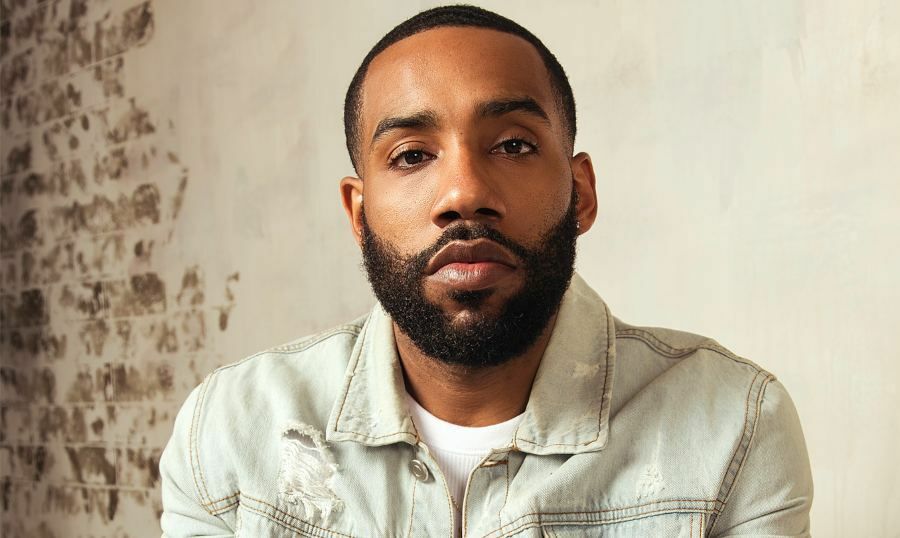
Sounds like you were close to your siblings. So how did you deal with the death of your oldest brother?
To be honest, that defeated me at the time. I thought it was over for me. He was like my father, he took care of me the most. If I ever needed anything whether it be money, a kick in the right direction, some sort of advice or support, he was always the guy that I got that from. I knew that if I ever lost him that could be the end of me. I didn't know how I'd be able to handle it. So when I got that call it was the worst thing that ever happened to me. Even though I lost my parents, I didn't know them and get to grow up with them as I did with my brother. When you grow up with somebody for almost thirty years and something so tragic like that happens, it's life-changing. When I heard the news it was the worst thing that ever happened in my life. I didn't even want to believe it, but I knew it was true because I had a dream the night before. I just couldn't believe what I heard.
You had a dream that he was killed?
I had a dream the night before that my entire family was fighting over something, and I saw everybody from my immediate family except for him. When I woke up, in my head, I was like, 'what does this dream mean? Everyone is arguing. Everyone is bickering. There was a fire. What's going on?' I saw everybody and didn't see him, and I thought, 'something is up with him because why is he the only one who is not in it? Is he the reason everyone is fighting and arguing?' Of course, when bad stuff happens, funerals and things like that have to be planned, and the family has to come together and there are going to be arguments. And then lo and behold I heard the news.
Where have you gotten the strength to keep going in the midst of all you have faced?
I think there are multiple places and one of them I should think is of course God. God is not going to put you through anything that you can't surmount. I lean a lot towards my grandmother because she is the backbone of this family. Everything that I've gone through, she has gone through as well. She lost her kid, her daughter, which was my mom. She also lost my brother as well. Somebody her age who has seen a lot and has been through a lot yet points me to the positives. I feel like I get a lot of my strength through her, and that's why I call her my best friend.
What advice do you give to people who feel defeated?
We have to make choices every single day when we wake up, and my choices every day have been to keep going. There have been multiple times in all our lives where each of us has thought, 'I don't know how I'm going to get through this. I'm never going to get through it.' But you kept going and years later you're still here. I would tell them to keep going because that's the only way you're going to get through things.
Can you tell me what you are doing now?
Dream Chaserzzz keeps me very busy. I helped open up about seven basketball academies across the world, and for me, that's how I choose to give back to the community. I believe that my greatest asset is to help others, and I realized this through basketball because that was my escape from a lot of life's realities. Once I started playing basketball and fell in love with it, I started to realize that I could help people and touch more lives if I became a trainer. I did that, and that's when I figured out that my passion is actually for helping people and not basketball. Basketball is just a tool that I've been blessed with to be able to help and connect with people. I also do youth mentoring. I go into Elementary and High schools to share my knowledge, words, wisdom, and anything else that I can do to get people out of rock bottom or wherever they are at.
Could you tell me about your book?
I started writing this book about two and a half years ago. My brother was still alive at the time, and of course, I wrote about him in the book. The book wasn't even finished until early 2019. The stories were still writing themselves out, and they still are. "Before My Glory" is a book about overcoming adversity. It's about everyday things that we all go through, and I just chose to use my life experiences to tell the story. I talk about all the successes, lessons, triumphs, tribulations, and everything that happened along the way. I share all the things people never knew about me before they knew me. This day and age, especially with social media, it's easy for anyone to look at someone and say, 'they are perfect.' Not knowing that they went through hell and back to get to this point in their life. I just felt like it was very important for people to understand that everyone has a ‘before’ story. Everyone has a glory story. Nobody's glory is the same. What you measure as your glory or success is not how I measure mine. I know guys who have never played on a basketball team before, who never made any sort of team before, try for ten years and eventually make the team. This could be their glory story. Somebody who never thought that they could graduate College or University ends up getting a scholarship and graduating. This is their glory story. It's all measured differently for everyone. I feel like we all have a story, and I advise everyone to go and tell their story. This is what it's all about. I chose the word glory because it is rarely used unless you are talking about it in biblical terms. When it is used, we understand the magnitude that it comes with.
What do you want people to get out of this book?
I want them to see themselves in me, and see that anything that they want to do is achievable as well. When people see me they think that I'm this great person, and maybe I am and maybe I am not. It was my choice to become something instead of just sitting around and letting myself become the statistic that they said I would be. Regardless of your situation, where you have come from or how you were raised, it's still possible for you to do something special with your life. With this book, I want people to understand that "Before My Glory" is about proving that our lives are shaped by what we want it to be. Forget about what anyone else tells you. What do you want to be? Create it!
Every single one of these 'so-called' hoods or government housing, I've lived in. I have friends still there, and when I go back and talk to them I'm like, 'you have got to keep your head up regardless of the situation. What they want to see is your head down. Your head down is them winning. Each and every one of us is a King. We were meant to be Kings. Nobody puts a crown on a head that's down. Be proud of who you are, and know that you can make it out of there if you want to.
Before My Glory is available at justinalliman.com.
Know a Black Canadian story we should cover? Email us: info at byblacks.com.
Lucy Oneka is a playwright and journalist. She has covered many stories for Toronto-based newspapers such as the East York Observer, the Scarborough Observer, and the Toronto Observer. Lucy’s other passion is music. She is a two-time semi-finalist of the prestigious UK Song Writing Contest and recently released her own debut gospel album, “You Are Faithful”
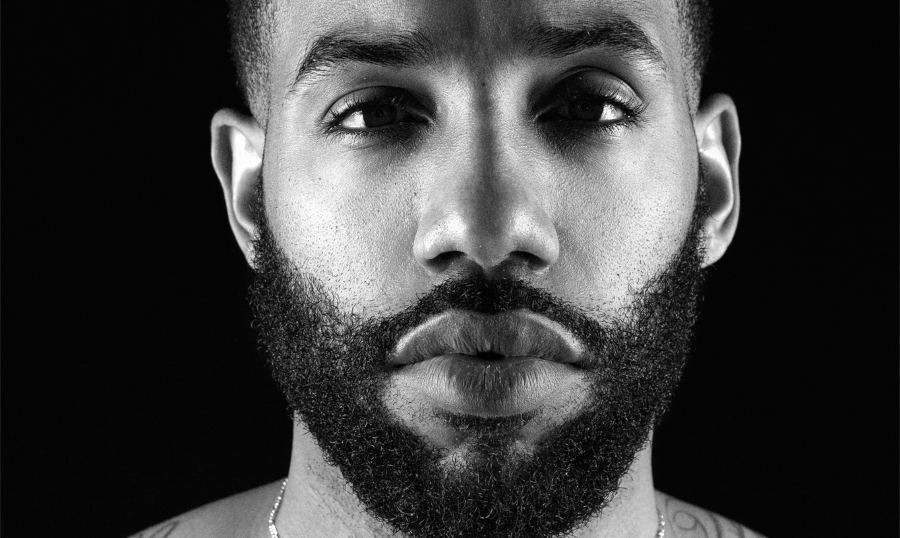
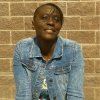 By
By 

